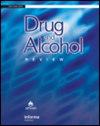The study aims are to: (i) explore methods for identifying alcohol company marketing in metaverses; (ii) identify current types of alcohol marketing in metaverses; and (iii) identify dominant portrayals and meanings of alcohol marketing in these settings.
Our design was exploratory, employing various approaches to identify alcohol company marketing across multiple metaverses. In stage one, we systematically navigated through metaverses as an avatar, documenting and coding all instances of alcohol company marketing. In stage two, the research team collaboratively explored and discussed excerpts of this marketing. The team thematically analysed the transcribed discussion, identifying key meanings and interpretations of immersive and interactive alcohol marketing.
Stage one: alcohol company marketing was identified in two metaverses, Decentraland and Sandbox. Within those metaverses were five alcohol company marketing experiences: Heineken Silver, Jose Cuervo Tequila, Wisher Vodka, San Matias Tequila, and Mason Martell Cognac. Marketing strategies included immersive commerce, virtual drinking, immersive branding, immersive engagement, gaming, non-fungible tokens (digital assets), education, non-player characters promoting brands and virtual event-based marketing. Stage two: themes identified were: (i) immersive branding, representing continued exposure to brands that were both foregrounded and on the edge of users' awareness; (ii) immersive engagement, including alcohol-related gaming, quests, and alcohol production; (iii) avatars simulating drinking behaviour (virtual drinking); and (iv) immersive commerce representing how metaverse alcohol marketing may drive alcohol transactions.
Alcohol companies are using novel immersive marketing techniques in metaverses. The impact on the experiences and drinking behaviours of users are unknown and require investigation.



